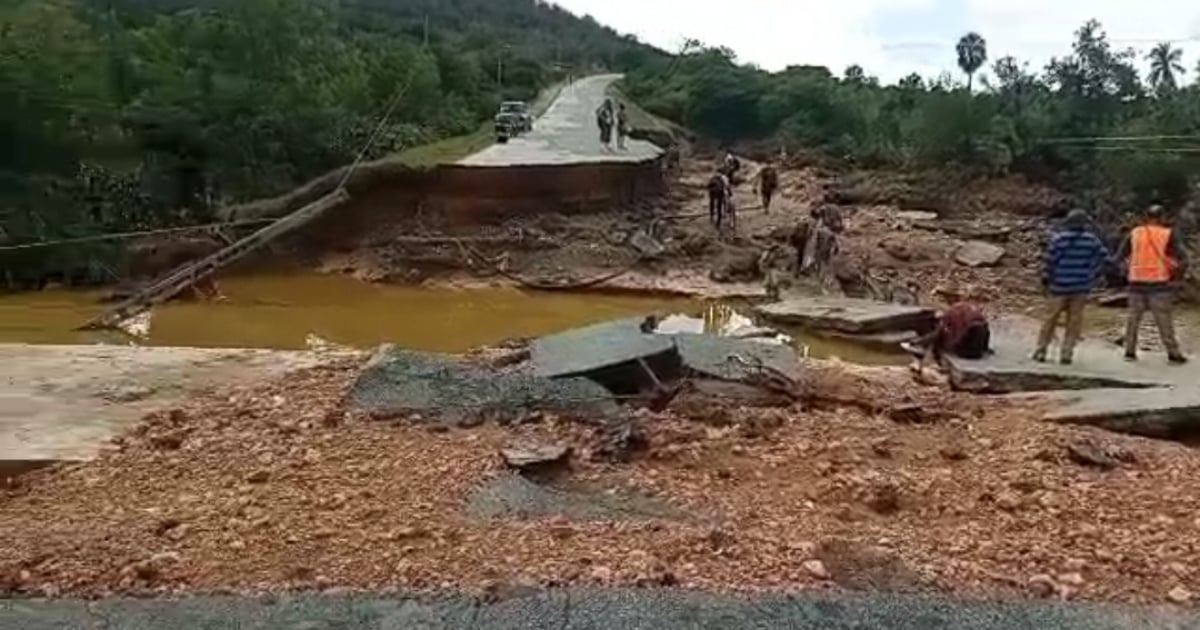
After the devastating passage of Hurricane Oscar through the province of Guantánamo, testimonies from those affected raise doubts about the official figures provided by Cuban authorities, who reported seven dead as the official toll. A resident of San Antonio del Sur, one of the hardest-hit municipalities, claims that the reality is much more critical and that the deaths and disappearances far exceed what has been communicated.
"In fact, there is a couple, a married couple with a seven-year-old child. The parents passed away and their identities were not revealed. The child was swept away by the river, but managed to grab onto a coconut tree. Thank God he is alive! But those parents have not been officially reported as deceased," the woman recounted, showing the great discrepancy between what is experienced in the communities and what is officially disclosed. She added that, according to her aunt, in San Antonio del Sur and the surrounding areas, neighbors estimate between 17 and 20 dead, "because in those municipalities, everyone knows each other and there are actually many more deaths."
The village of San Ignacio, one of the most affected, was completely submerged underwater. The affected person commented that in the area where her family lives, the water covered even the roofs of the houses. In municipalities like Imías, although the water level has begun to recede, there are areas that remain inaccessible.
Another testimony reveals that, unofficially, figures of more than 76 missing persons are being reported in the most affected areas. In municipalities like San Antonio and Imías, which are coastal zones with high population density, many people continue to wait on the roofs of their homes for the water to recede so they can be rescued. It is estimated that the total amount of rainfall accumulated in the region has exceeded three meters. "There have been problems with the bridge structure, which limits access; the road is not passable. It is only possible to reach the main town, and access to other communities takes much longer," it was pointed out.
"Many residents had to leave the towns and seek refuge in the mountains, and the hope is that they have managed to reach other communities." The young man has stated that the locals were three days without knowing anything; they thought it was just intense rain, but the Pozo Azul dam collapsed. People went to bed to sleep, and suddenly the water began to flood into the houses. Those who lived in two-story houses were able to take refuge on the upper floors, but the water rose so much that it still reached some families."
This same volunteer, who works on delivering food and basic products to those affected, detailed the process followed to inform about the individuals who have survived and are in areas that remain inaccessible. He explained that those who manage to reach the affected communities take notes with the names of those who are alive, then they post them on the mural of the Popular Power so that everyone can read the information. "This is how people in the area are being counted," he concluded.
These testimonies highlight the magnitude of the disaster, the poor management of the local government, and the indifference of the Cuban state leadership in general, as well as the precarious situation of thousands of families in Guantánamo, who remain in an alarming situation while they wait for assistance and for water levels to decrease so they can return to their homes and start rebuilding their lives.
What do you think?
COMMENTFiled under: